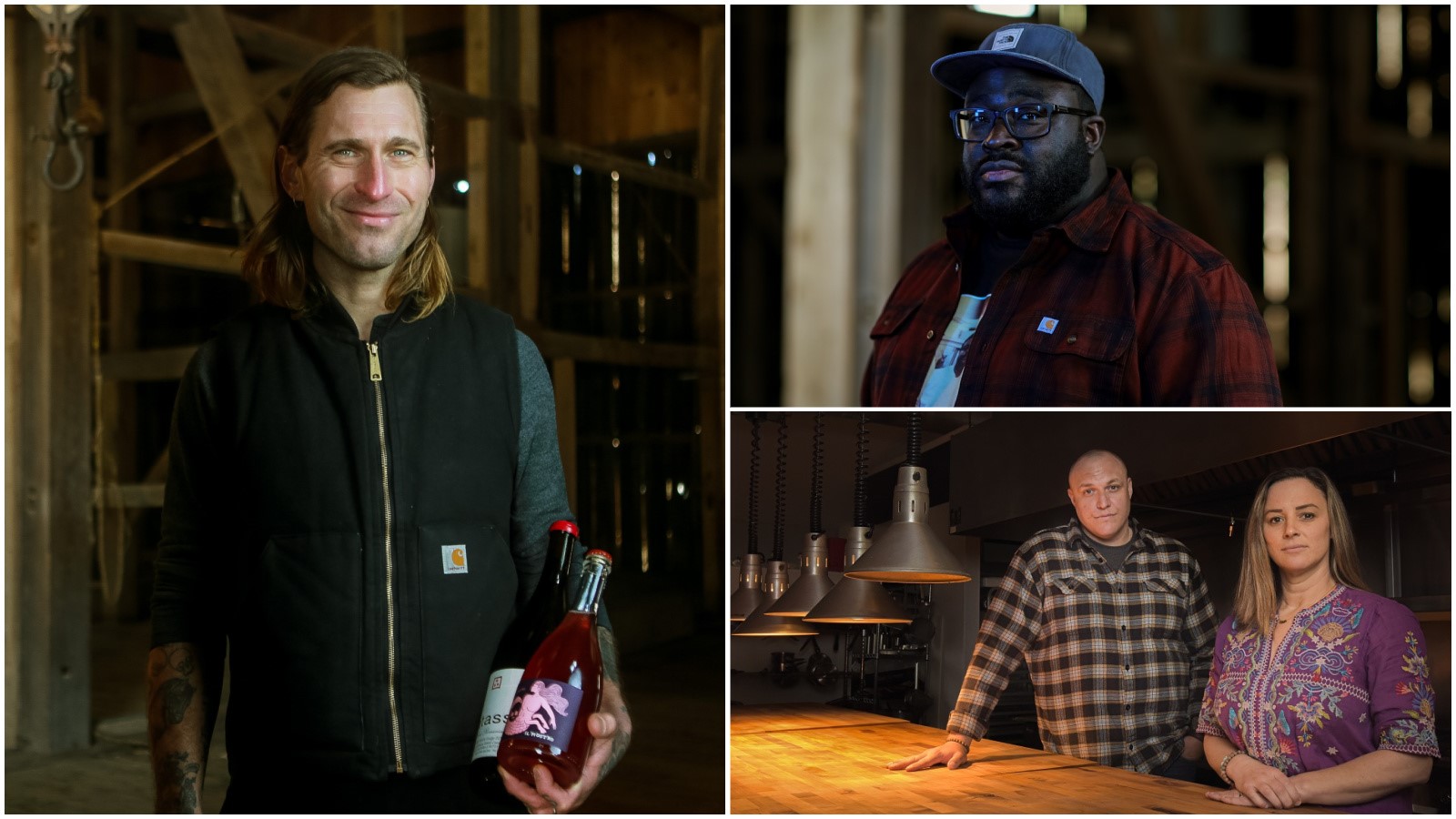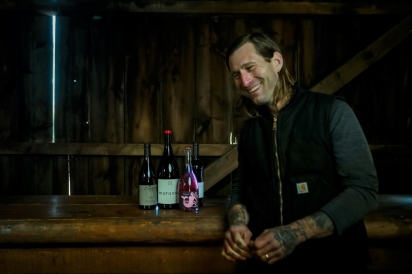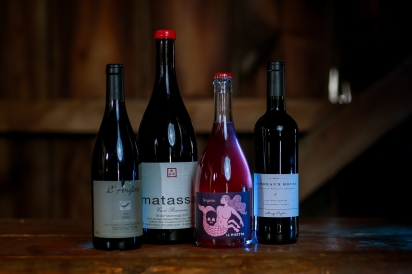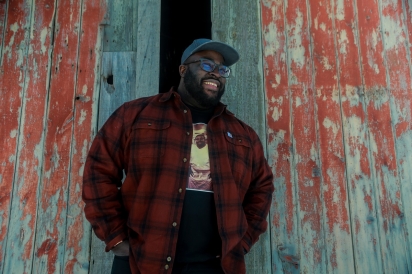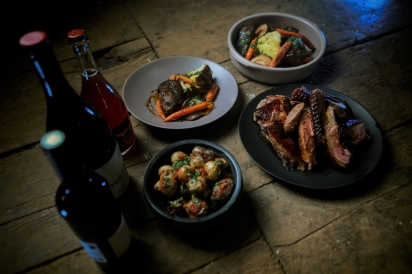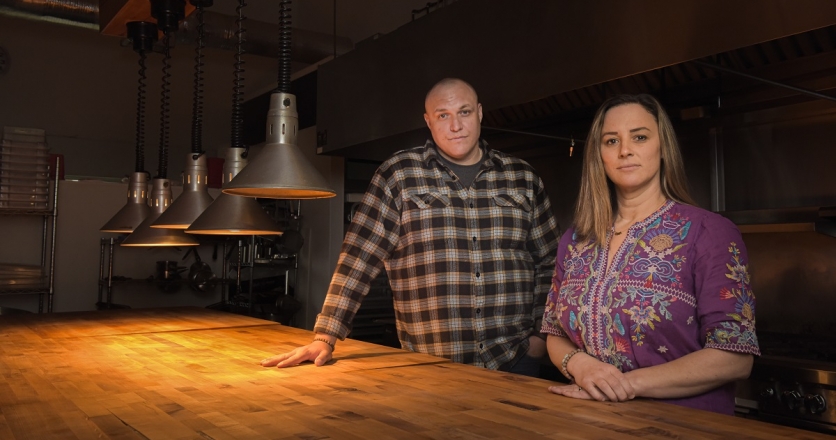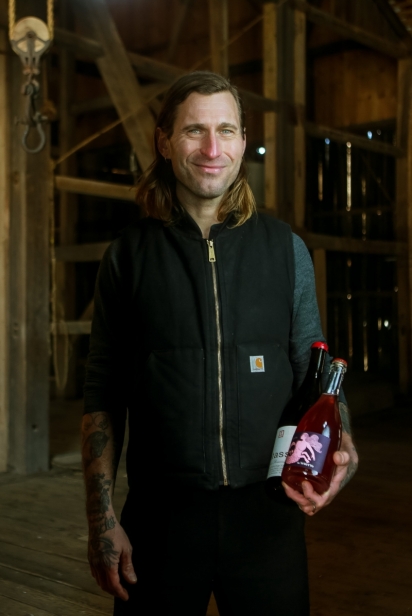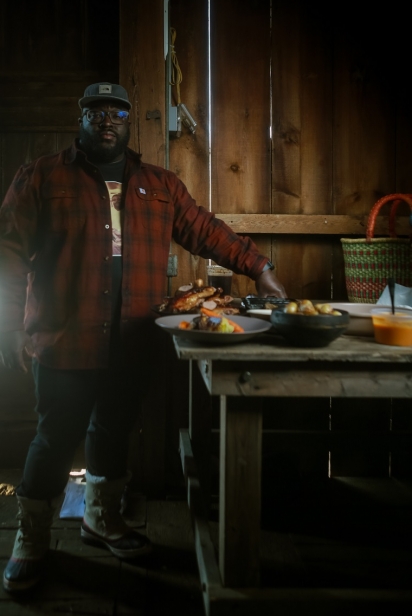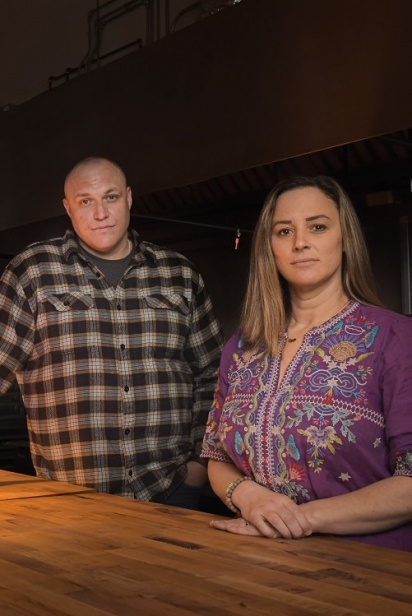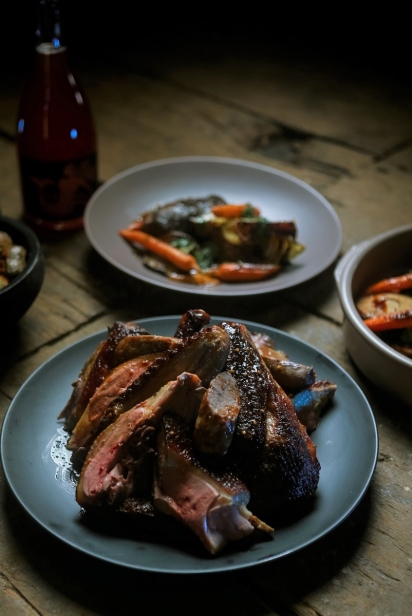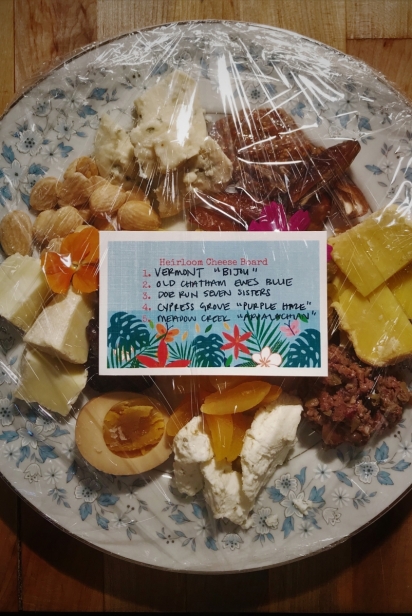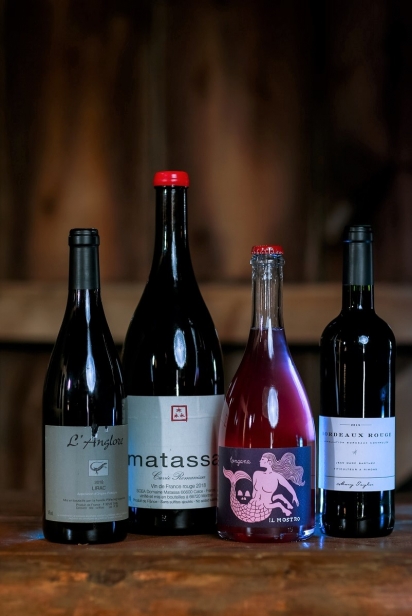Silver Linings: Stories of Pandemic-Era Evolution
Navigating the challenges of the COVID-19 pandemic has also created opportunities for forging new paths, fulfilling old dreams, and creating second chances.
As devastating as the COVID pandemic has been on the hospitality and culinary industry, it is in the nature of chefs, restaurant managers, line cooks, bartenders and foodservers to make order out of chaos. Adjusting to unforeseen variables is in the DNA of the industry. The coronavirus pandemic’s effect on the hospitality and culinary world has been the most extreme example of this: the existential precipice that restaurants and restaurant workers continue to face is very real. Yet, in the midst of this uncertainty, new horizons are opening where old doors have clanged shut.
When Delaware restaurants were shut down, Matthew Kern and Meghan Lee of the restaurant Heirloom in Lewes recommissioned their kitchen staff and got them summer jobs as farmers. When his wife was laid off, Chef Gerald Allen, a Culinary Skills Instructor at a vocational high school, reinvented himself as a roadside barbeque maestro. For both, reinvention wasn’t just a new source of cashflow–it was also an adjustment in perspective, a new creative outlet and opportunity to grow and nourish their community.
This is also my story. I am a former New York-based Wine Director who was furloughed in March 2020. I decided to relocate and to create my own wine importing company and introduce “natural wine” to the state of Delaware through popups, virtual wine-classes and tastings. These are a few glimmers of hope in the middle of the most trying days of our lives.
From Sommelier to Business Owner: Ouro Wine Selections
The night of March 14th, 2020 was to be my final service working as Wine & Beverage Director at the esteemed, natural- wine driven restaurants Contra and Wildair in the Lower East Side of New York. Of course, I had no idea. None of us did. It was also the “last Saturday” in New York before waves of city-wide restaurant and retailers crashed, propelled by the horrific tide of coronavirus cases.
On that “last Saturday,” restaurants were packed as guests ate and drank with a reckless abandon, perhaps sensing that this would be the last weekend of normalcy for a long time. The following Monday, as the magnolias bloomed flamingo-pink on the streets of Brooklyn, a citywide shutdown went in place and the restaurant industry was ravaged.
As a 16-year veteran of New York City’s hospitality industry, it took me weeks to realize that my career was imminently in danger. Reality set in as my wife and I sheltered at her parents’ home in Wilmington, Delaware, and I filed my first unemployment claim. Through the spring, I spent long days weeding family gardens, building a cobblestone pathway, and chainsawing the many storm-downed trees on the property. Each day, I was consumed with the question, “What in the world am I going to do now?” I considered education–law school, perhaps? I considered carpentry, medicinal herb farming, and finance.
Yet, all these options would require a complete restart of my life, a flushing of nearly two decades of experience down the drain. In May, my wife and I learned we were going to be parents. Suddenly, I was thrown into survival mode–I needed to come up with a plan immediately.
During this time, I would buy wine at my local shop and realized that so many of the artisanal wines I loved and sold to my customers in New York City were not available here. I realized that there might be an appetite for them and so it dawned on me… “Why not start your own company and distribute wine in Delaware?” Realizing I had stumbled backwards into what could be a complete reinvention of my career, I dove in and a month later was immersed in the Byzantine world of legal paperwork, shipping logistics and warehousing, and setting up a website.
My company, Ouro Wine Selections, was born in September 2020 and now brings organic, artisanal wines to the shops and restaurants. These wines are a stark contrast to those mass-produced by corporate wineries that appear in so many shops and on restaurant wine lists, and which can be heavy, alcoholic, massively tannic, sweet and lifeless.
The wines I work with are incredibly fresh and vibrant, less manipulated and lower in alcohol, and as a result are incredibly food-friendly and do not leave the imbiber with a chemical hangover. These wines clearly reflect the places they come from, the people who make them, the grapes, and the climate. I select each wine and deliver each bottle myself, managing my own shipping and warehousing.
Starting a business has come with a host of growing pains– learning how to drive a box truck after having not driven in 15 years, the difficulties of teaching masked wine classes, and the challenging of creating and managing a business from scratch–all during a global pandemic. This all said, it’s been worth it. Today, my wines are now available in 10 shops statewide and are part of a growing roster of restaurants that I am optimistic will only grow.
Learn more at Ouro-Wines.com
Chef Gerald Allen, Roadside Barbeque Maestro
Last summer, as I mulled over starting my company, I met Chef Gerald Allen at his roadside barbeque pop-up at the legendary SIW farmstand in Chadd’s Ford, Pennsylvania. His barbeque rig was hitched to the back of his massive pickup truck, and was loaded up with scores of herb-crusted fresh chickens roasting over oak and applewood on a beautiful summer afternoon.
He was busy packaging to-go dinners with freshly grilled vegetables, potato salad and pickles for a lineup of people who had pre-ordered. In the vacuum created by restaurant closures, word had gotten out through social media and the clamor for Chef Gerald’s cooking reached a fever pitch. Needless to say, Gerald was very busy the afternoon we met.
Gerald certainly looks the part of a grillmaster – soft spoken with a hundred-yard stare. Yet, he is also kind-eyed and patient – not your typical fireball-throwing chef. This makes sense when you learn that he works with kids as a Culinary Arts teacher and wrestling coach at a local vocational high school. After years working up the ladder from line cook to running kitchens at well-established, high-volume restaurants in Arizona, Gerald realized he wanted a change in lifestyle. A native of Bear, Delaware, he found his home was calling to him, along with the idea of teaching and coaching youth. After all, his culinary inspiration came from long summer afternoons as a child, learning from his mother how to taste, cook and appreciate simple dishes made with impeccable technique. His love for fresh produce came from working alongside his grandfather in his vegetable garden in Lewes. He landed a gig at Hodgson, the very same vocational high school he had attended, where he began teaching culinary arts and coaching wrestling.
At the beginning of the COVID pandemic, Gerald’s wife Natalie Eguez, an Executive Chef for the Marriott Corporation, was laid off. Gerald could clearly see that Hodgson would be going virtual. His family, like so many others in the country, was experiencing first-hand the pandemic pinch. Gerald longed for a creative outlet that might also ease the pinch, and called on local farm owner and friend H.G. Haskell, owner of SIW farmstand, and proposed a roadside barbeque dinner series. Wilmington locals could pre-order and pickup safely and word spread very quickly, and before long Gerald was serving up to 180 dinners each time he would set up.
Nourishing others has always been an integral part of Gerald’s motivation for cooking as is working with a family-driven team, so he assembled a team to assist him that includes his mother, his wife, his cousin and his good friend and business partner Khoran Horn. In a year full of uncertainty and trauma, the pop-up dinner series was a bright spot for so many families, including Gerald’s own.
Later in the year, I was able to collaborate with Gerald and his family on a socially-distanced natural wine tasting and dinner to-go at one of our local favorite wine shops, Swigg. Over 100 tickets were sold and, for an evening, things felt a lighter and a bit more hopeful. So hopeful, in fact, that Gerald will continue the pop-up and roadside dinners, along with teaching and coaching.
Keep up with Chef Gerald on Instagram @GravyBoatJones
The Evolution of "The Heirloom Feeling"
After months of admiring Heirloom from afar via social media, I visited the jewel-box restaurant in historic Lewes. I call it the “Heirloom Feeling” – this feeling of immersion, of being “exactly in the right place” when you enter the gorgeously-restored Victorian home. Owner and manager Meghan Lee is masterful at creating the details and Chef Matthew Kern’s culinary ethos is simple: reflect exactly what is in season at local farms and tell the story of these beautiful ingredients in context of past and future. Yet, Heirloom is much more than the sum of its magical golden-hour lighting, its pitch-perfect seasonal cuisine and its thoughtful artisanal wine list. Situated on a street buzzing with locals but also a block away from Beebe Hospital, guests at Heirloom are just as likely to be visiting sick loved ones as they are to be on a special date. The restaurant is deeply aware of the role that dining space plays in a guest’s experience and how that environment is an integral part of how the meal will be remembered. So much of Heirloom, and any truly great restaurant, is this ability to enhance feeling, to bring people a little closer, for joy to be felt just a little deeper.
Interacting with the Heirloom team, it’s very obvious that this is not an act and the restaurant is more than a job for its employees: it is a family. Most of the staff have been with the restaurant since opening nearly five years ago – a stunning detail if you know much about the “Wild West” of staffing a seasonally-driven restaurant.
So, what happens when such a restaurant whose lifeblood is the masterful creation of these nuanced, family-like experiences is suddenly shut down by a pandemic? What happens when the dining space is empty, its candles unlit, its gas-ranges cool, its wine glasses empty? Where does the staff go? For the Heirloom crew, the answer was surprising.
An opportunity came up to go outside the walls of the restaurant and work for one of the produce purveyors, Totem Farms, an organic farm specializing in local fruits, vegetables and herbs. Instead of long shifts inside the restaurant prepping vegetables, baking bread, sautéing herbs and braising proteins, much of the team became farmers for the 3-month season.
They woke at 5 a.m. to spend chilly mornings outdoors, walking into Totem Farm’s warm greenhouse where they would learn to grow the herbs, fruits, and vegetables they hoped to cook with and serve again. Working at Totem required learning a whole new routine, much of which involved working close to the ground on hands and knees for most of the day. The Heirloom team learned to survey fields for frost, beetles, snails, rodents; how to compost and prune; the necessity of keeping herb foliage off the ground; how to stake hundreds of tomato plants. Watching the daily progress of how things grow, the Heirloom staff began to learn a deeper appreciation for just how difficult it is to grow tomatoes, onions and herbs.
With the restaurant closed through spring, the Heirloom crew also threw themselves into preserving and pickling the spring’s bounty– a way to “remember a whole season” in preparation for serving these ingredients later in the year. Suddenly, the sense of family had taken on surprising new dimensions for its staff: the pandemic brought its team together, solidifying the restaurant’s vision and creating deeper connections not just with food but with one another as a family. It also provided Totem Farms with a team of disciplined and focused staff for the season.
After a season spent outside the walls of the restaurant, the Heirloom team came together to reopen having seen one another and their profession with fresh eyes and a renewed appreciation for the origins of the ingredients and the food they prepare and serve.
Learn more at HeirloomDelaware.com
A Leap of Faith
Narratives such as these are deeply important to us as a society as we deal with challenging times. Using what we know to reinvent ourselves and our teams is how we grow personally and professionally in times of difficulty. Despite the risks, trusting your instincts and taking a leap of faith can often become the best decision you ever make.


